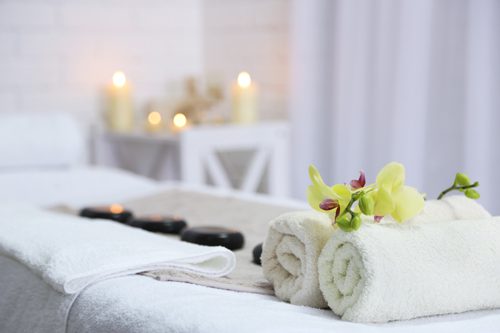Many people who have been to a treatment center like Mountain Laurel Recovery Center have experienced the wonderful benefits of therapeutic massage or a similar type of bodywork.
Benefits of Massage Therapy
Massage offers evidence-based physical and emotional benefits that support addiction recovery. Unfortunately, massage is too often seen as a “treat,” an indulgence reserved for a birthday or special occasion—and many, conscious of a tight budget, never even consider massage as an option.
How Can I Afford a Massage?
Times are changing, and now that massage therapy is gaining respect among the medical community, some insurance plans will cover it if it’s recommended by a doctor or chiropractor. Additionally, some massage schools offer free or much-discounted massages so that their students can practice and complete internships.
Do I Have to Get Undressed?
Some people fear the intimacy of a massage, taking off their clothes and letting a stranger manipulate their muscles and limbs. Here’s the thing: massage therapists want you to be comfortable. They can work with you and your comfort level. If you want to bare all, fine. If you want to keep your underwear on, fine. If you don’t want the therapist to touch your bare skin, he or she can massage you through a thin sheet or even massage through your clothing. Some types of massage, like Thai massage, Shiatsu, and acupressure, are typically done with the client fully clothed.
How Can Massage Help Me?
In the end, the benefits of massage far outweigh the concerns you might have about money or modesty. And for those in addiction recovery, massage therapy can make that “one day at a time” seem a little easier. Body and mind exist in a symbiotic relationship. When your body is healthy, you feel good emotionally and you can think clearly. When you experience anxiety, your body tightens in response and can manifest pain, discomfort, and impeded mobility. When you suppress emotion, your body holds those strong feelings and responds with tension, pain, poor blood and oxygen flow, and accumulation of toxins.
As someone in recovery, you know that anxiety can trigger cravings for the substance you’ve worked so hard to quit. You’ve learned in treatment the importance of expressing your emotions. Massage therapy works to release the tensions we hold in our bodies; as those tensions release, our mental and emotional states also release tension.
Let’s review, briefly, the specific ways massage can help you stay healthy and powerful in your recovery.
- Physically, massage therapy helps the body release tension and stress. It increases dopamine and serotonin, especially important neurotransmitters during withdrawal, when dopamine levels drop. According to the American Massage Therapy Association, massage decreases heart rate, blood pressure, and stress hormones. People who get massage regularly sleep better. Massage can help increase mobility and ease chronic back, neck, and joint pain.
- Emotionally, massage therapy can help clients become aware of feelings and release emotional tension. Those who have been through trauma hold the traumatic memories in their muscle tissue. Massage puts trauma victims in touch with their bodies and helps them release and heal the memories.
- Massage helps with mental health as well. Depression, anxiety, and other mental health disorders are eased by the release of stress hormones and increase of “feel-good” neurotransmitters that occurs during massage. At its most basic, massage is a time of caring physical contact that many clients might not otherwise experience.
How Do I Find a Good Massage Therapist?
Perhaps the easiest way to start is to Google “massage therapist near me.” This will likely yield several results that include reviews. Your doctor or chiropractor may also be able to recommend a massage therapist, and you can always ask your friends and family. Enough people get massage therapy that it shouldn’t be too hard to find someone you know who can point you in the right direction.
A good massage therapist is a licensed professional. In addition to their knowledge of technique, a good massage therapist creates a healing environment that makes you feel relaxed and cared for. A massage therapist should be sensitive to your needs and comfort level.
If you decide to start making massage a part of your life, you’ll want to try several different therapists to compare styles and techniques. One therapist might be helpful in addressing specific injuries or concerns. Another therapist might be better at providing an overall experience of relaxation. Yet another therapist might use a unique technique that will add variety to your experience.
Remember to communicate with your therapist. Provide feedback if the pressure is too intense or painful for you. Ask for more focus on one area of your body if you feel it needs the attention.
Massage During & After Treatment
As previously mentioned, many treatment centers offer therapeutic massage as part of the treatment program. Remember, as you continue in recovery after treatment, that massage is not just a luxury. It is a powerful tool to incorporate into your recovery routine. Recovery from addiction will take all of the creativity, passion, and commitment you can manage. Finding new ways to support your mental, emotional, physical, and spiritual health will keep you excited and motivated in your recovery.
Sources:
- psychologytoday.com/blog/urban-survival/201505/5-ways-stress-hurts-your-body-and-what-do-about-it

